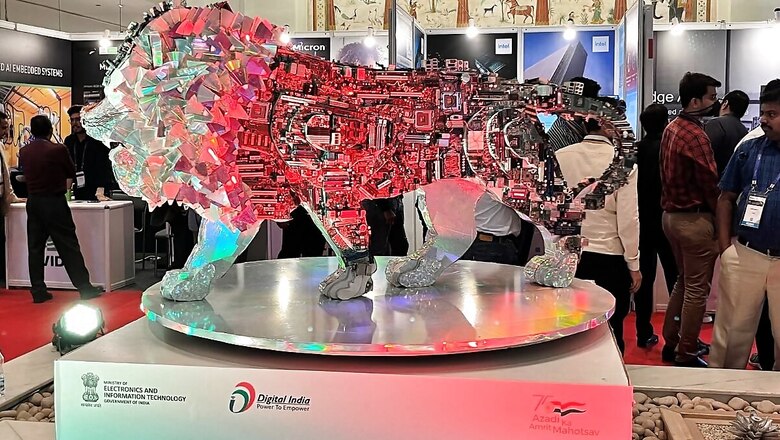
views
In a push to the ‘Make in India’ and ‘Atmanirbharta’ models, the Narendra Modi government has asked various ministries to focus more on procuring local goods, and has tightened regulations regarding granting exemption to departments to procure items from abroad for orders worth less than Rs 200 crore.
In a fresh set of recommendations to ministries vide a letter on July 11, the Cabinet Secretariat has asked DPIIT to support domestic companies for production of goods and also stipulated that a domestic tender should have been issued before every new proposal for a Global Tender Enquiry (GTE) is submitted for approval.
As part of the ‘Make in India’ programme, the government in 2020 had barred any inviting any GTE’s below Rs 200 crore. In exceptional cases, the Cabinet Secretariat was made the authority to relax this rule on getting proper justifications and reasons.
The fresh recommendations come after a meeting held on July 7 under the Chairmanship of Secretary (Coordination), Cabinet Secretariat with Department of Expenditure and Department for Promotion of Industry and Internal Trade (DPIIT) to discuss the GTE proposals of various Administrative Ministries. News18 has a copy of a July 11 letter that summarised the meeting decisions.
What All Ministers Must Do?
“It was observed that there have been a few cases where domestic manufacturers have shown interest but didn’t actually participate in the domestic tender. DPIIT should give special attention to these cases to identify the constraints which prevented the domestic manufacturers from participating in the tender. The issues identified may be discussed in detail with all relevant stakeholders and resolved to encourage domestic production of such goods,” the Cabinet Secretariat has said in its latest letter.
The letter also says in the initial period of manufacture of a new equipment or item, domestic manufacturers may suffer commercial losses due to rejections or failures. “As part of the ‘Make in India’ initiative, DPIIT may consider looking into this aspect so as to ascertain the feasibility of developing a policy framework to support such companies in the developmental phase,” it said.
The government has further asked DPIIT to undertake demand aggregation in various identified sectors such as casting and forging, power equipment and instrumentation (including survey equipment) by preparing lists of such products with significant market size for ‘Make in India’ in consultation with all ministries and departments and develop action plan for their indigenisation.
“DPIIT in consultation with PSUs such as BHEL and other research/academic institutions may identify the technologies already available within the country and take effective steps for transfer of such technology to the private sector to encourage domestic manufacturing,” the letter says.
The Cabinet Secretariat has also asked the Ministry of Heavy Industries to apprise the Group of Officers (GoO) about the initiatives taken to promote ‘Make in India’ initiatives in forging and casting. “DPIIT may hold meetings with Ministries of Steel, Mines, Power, Heavy Industries and domestic manufacturers to carry forward the initiatives of ‘Make in India’,” the letter says.
The Cabinet Secretariat has also asked the Ministry of Power to step up. “Keeping in view growing demand of power in coming years, the requirement of transmission equipment such as transformers and switchgear is also likely to increase. Power Ministry in consultation with DPIIT may therefore coordinate with all concerned stakeholders and prepare an action plan regarding feasibility of developing domestic manufacturing capacity of such equipment within a specific timeframe,” the letter has said.
The Cabinet Secretariat has also stipulated that domestic tenders should have been issued before a ministry seeks permission to bring a GTE proposal before the Secretariat.















Comments
0 comment